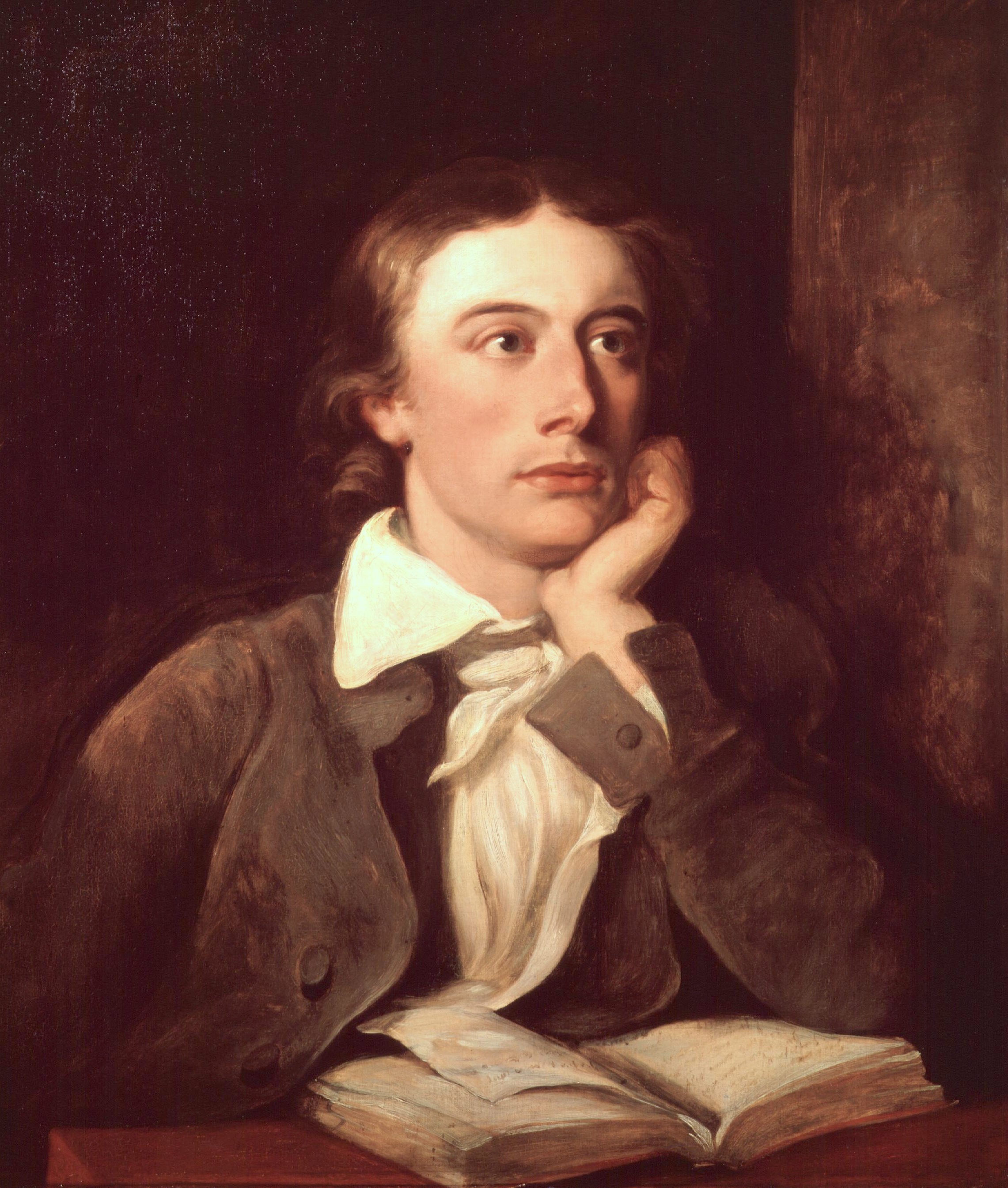Tender is the night. (ang.)
użyte przez F. Scotta Fitzgeralda w tytule jego powieści z 1934 roku.
Źródło: Oda do słowika (1819)
John Keats słynne cytaty
„Rzecz piękna jest radością wieczną.”
A thing of beauty is a joy for ever. (ang.)
Źródło: Endymion, w. 1 (1818)
„Myślę, że po śmierci będę wśród Angielskich Poetów.”
I think I shall be among the English Poets after my death. (ang.)
Źródło: list do George'a i Georgiany Keats (14 października 1818)
„Piękno jest prawdą, prawda pięknem!” – oto
Co wiesz na ziemi i co wiedzieć trzeba.”
Źródło: Oda do urny greckiej (1818–1819), tłum. Zenon Przesmycki (Miriam)
La) Belle dame sans merci. (fr.
tytuł ballady z 1819 roku, zapożyczenie z tytułu wierszowanego dialogu Alaina Chartiera, poety francuskiego.
„Tutaj spoczywa ten, którego imię zapisano na wodzie.”
Here lies one whose name was writ in water. (ang.)
Źródło: epitafium na grobie Keatsa (1821)
John Keats: Cytaty po angielsku
" Sonnet. To One Who Has Been Long in City Pent http://www.bartleby.com/126/23.html"
Poems (1817)
“For cruel ’tis,” said she,
“To steal my Basil-pot away from me.”
"Isabella; or, The Pot of Basil", st. 62
Poems (1820)
"This living hand" (1819)
“And they are gone: ay, ages long ago
These lovers fled away into the storm.”
Stanza 42
Poems (1820), The Eve of St. Agnes
“In spite of all,
Some shape of beauty moves away the pall
From our dark spirits.”
Bk. I, l. 11
Endymion (1818)
“There is an awful warmth about my heart like a load of immortality.”
Letter to John Hamilton Reynolds (September 22, 1818)
Letters (1817–1820)
“A poor, weak, palsy-stricken, churchyard thing.”
Stanza 18
Poems (1820), The Eve of St. Agnes
Letter to his brother, (January 23, 1818)
Letters (1817–1820)
" Sonnet. Addressed to the Same http://www.bartleby.com/126/27.html" (Benjamin Robert Haydon)
Poems (1817)
“The sweet converse of an innocent mind.”
Sonnet, To Solitude; reported in Bartlett's Familiar Quotations, 10th ed. (1919)
Bk. I, l. 1
Hyperion: A Fragment (1819)
Letter to John Hamilton Reynolds (May 3, 1818)
Letters (1817–1820)
“The imagination may be compared to Adam's dream — he awoke and found it truth.”
Letter to Benjamin Bailey (November 22, 1817)
Letters (1817–1820)
“I can scarcely bid you good-bye, even in a letter. I always made an awkward bow. God bless you!”
Letter to Charles Armitage Brown (November 30, 1820)
Letters (1817–1820)
"The Fall of Hyperion : A Dream" (1819), Canto I, l. 147
“Every mental pursuit takes its reality and worth from the ardour of the pursuer.”
Letter to Benjamin Bailey (March 13, 1818)
Letters (1817–1820)
“In drear-nighted December,
Too happy, happy tree,
Thy branches ne'er remember
Their green felicity.”
"In drear-nighted December' (1817), st. 1
"I Stood Tiptoe", l. 72
Poems (1817)
